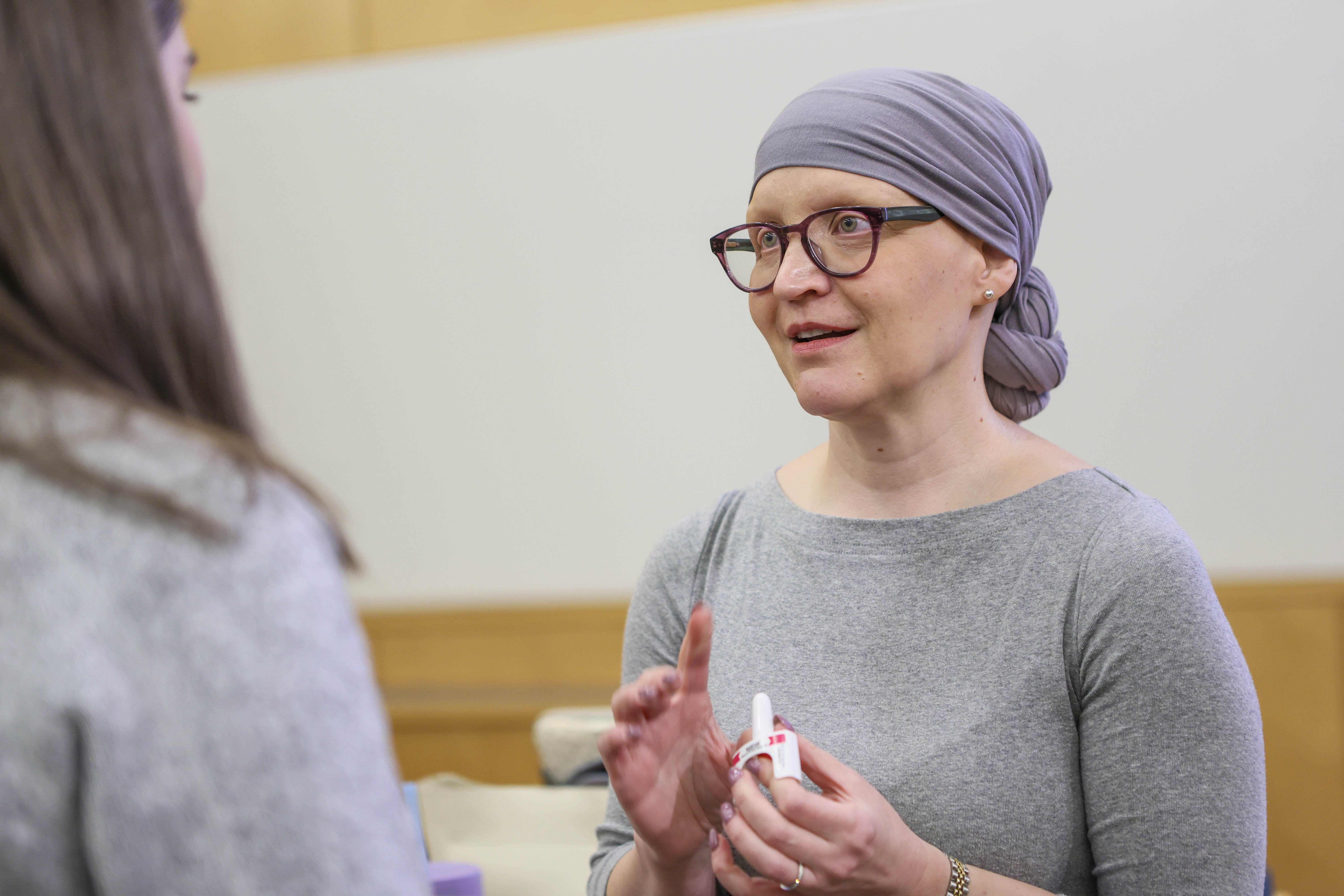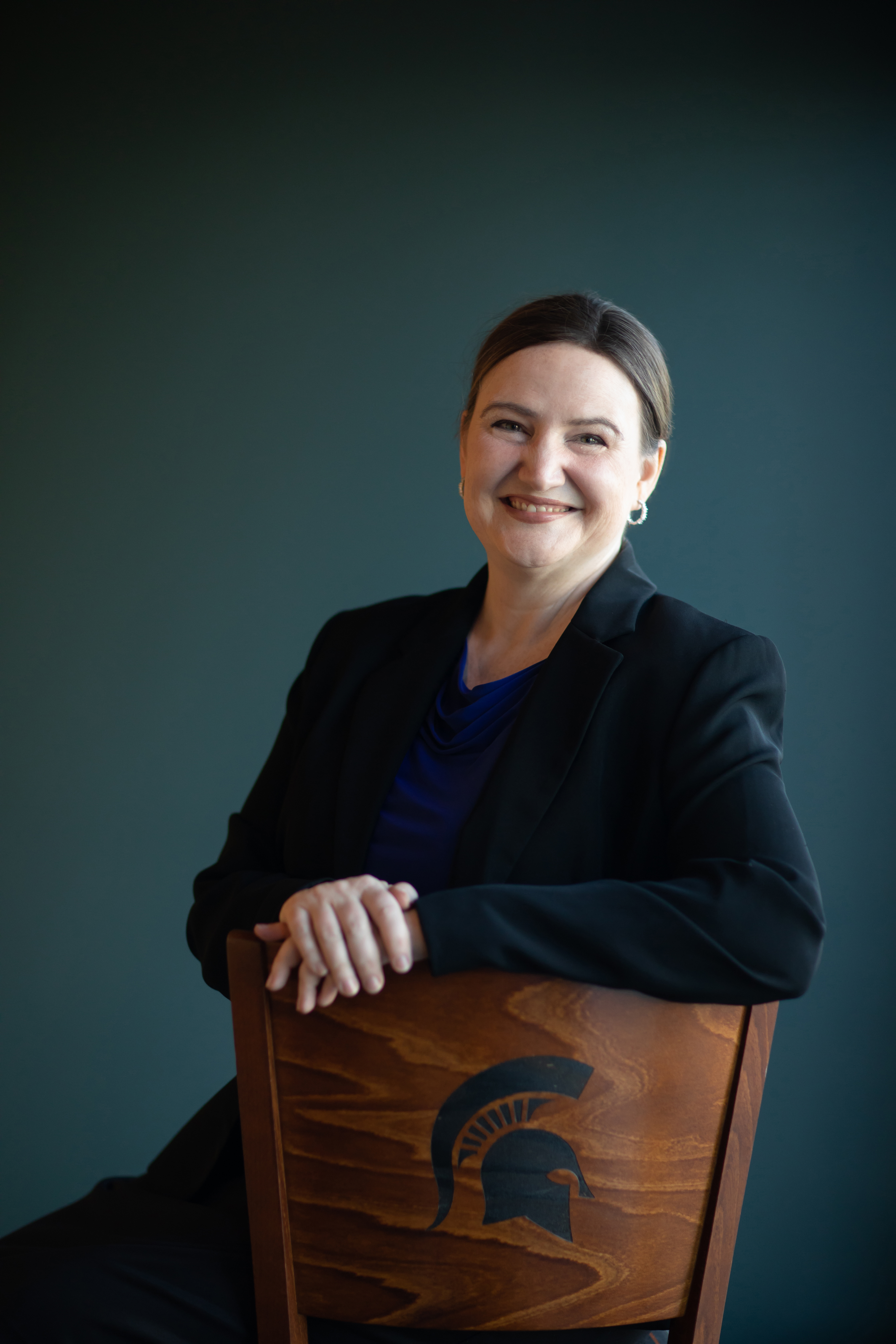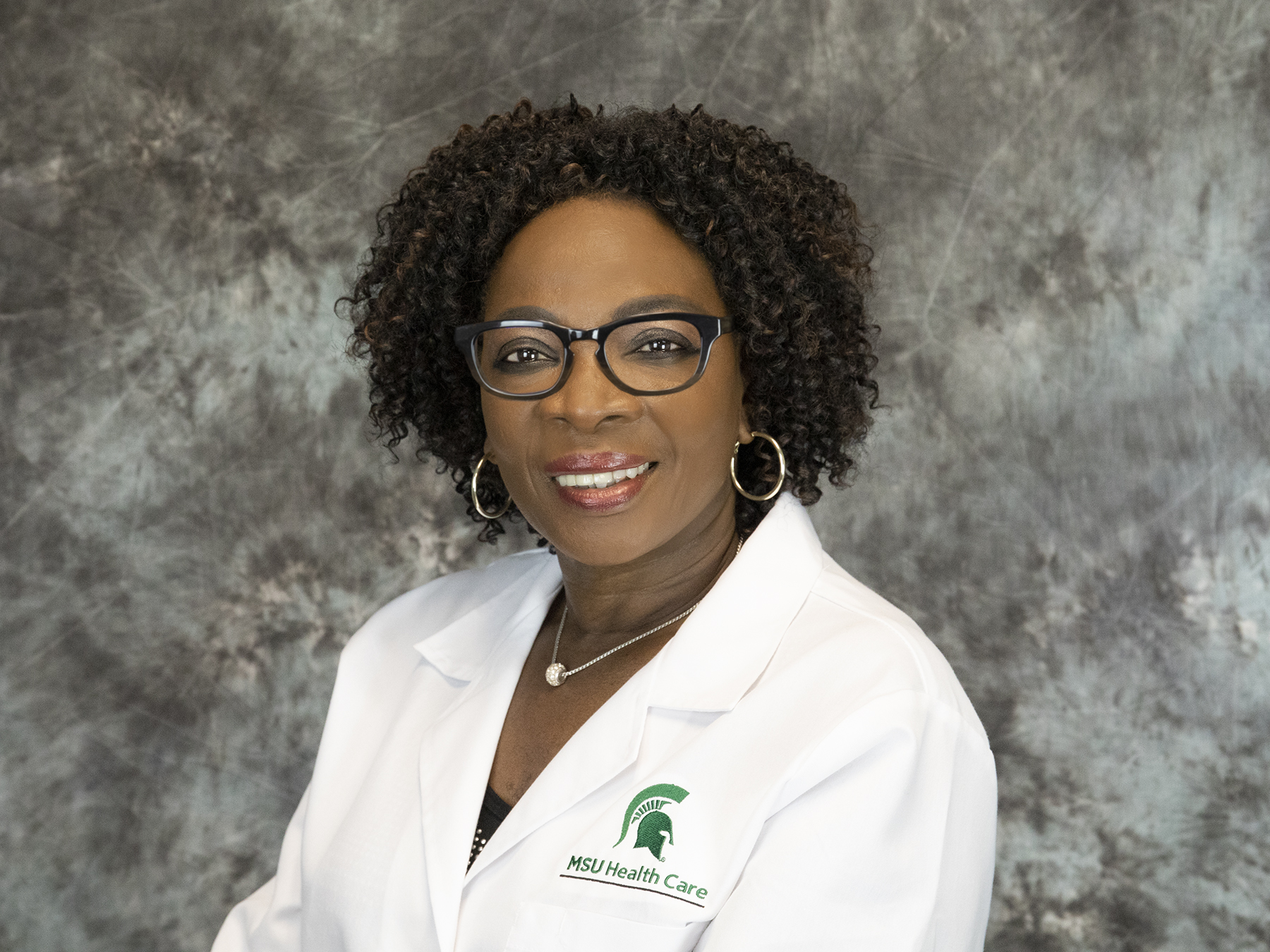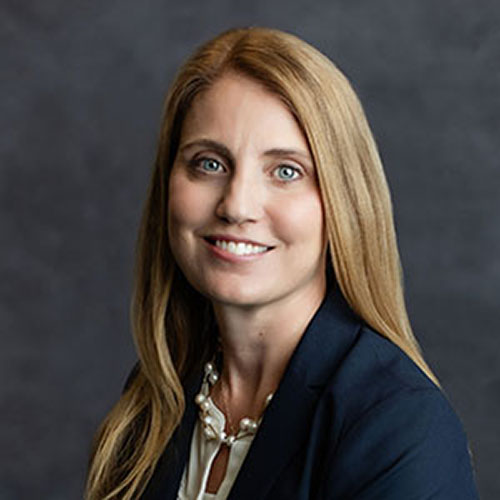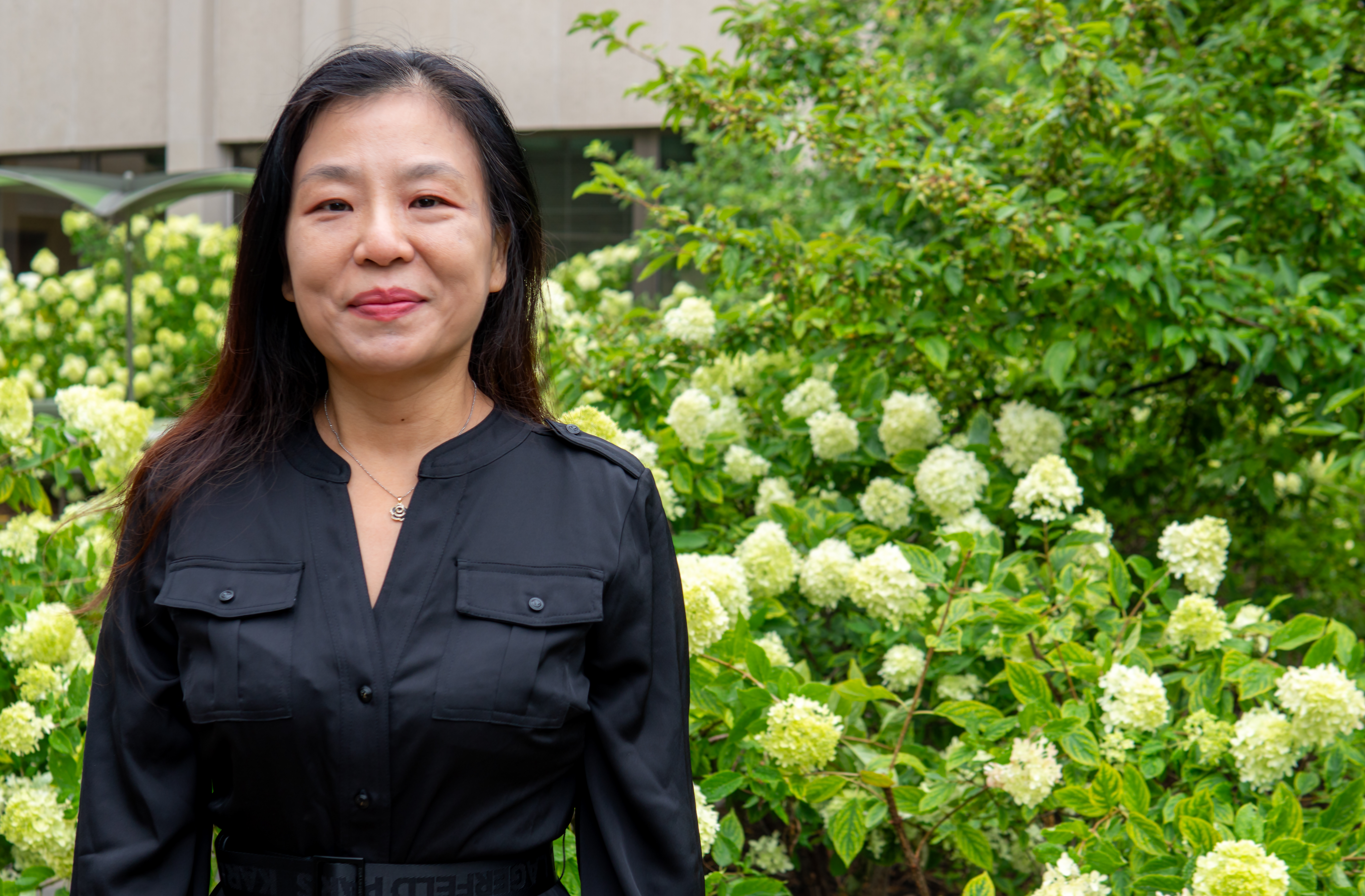Content note: This story addresses topics that include gun violence and suicide prevention.
For many MSU health sciences researchers, addressing underrecognized issues and including undertreated communities in their work is essential to building a healthier Michigan where no one is left behind.
Their efforts are part of a long arc of change in medical research. About half a century ago, an awareness of health disparities began to grow in the health sciences, focused at first on women and men. Historically, clinical trials and medical research disproportionally studied men, often generalizing the findings to women without considering biological and hormonal differences.
Studies and reports have since revealed how women respond differently to treatments and distinct symptoms during medical events like heart attacks. This led to a major shift in 1993 when the National Institutes of Health Revitalization Act mandated that federally funded clinical trials must include women and minority groups — a major turning point that aimed to mitigate adverse health outcomes for more than half of the U.S. population.
Teresa K. Woodruff, MSU Research Foundation Professor of Obstetrics, Gynecology and Reproductive Biology and Biomedical Engineering, has advocated for diversity in research teams and research lab facilities for years, a logical consequence of the need for study participants to reflect the makeup of society. She says, “The more diverse the environment, the better the outcome for those who fund the research and those in whose interest the work is done.”
The former interim president of MSU, who received the National Medal of Science on Jan. 3, coined the term 'oncofertility' in 2006 — a new field at the intersection of oncology and fertility research that addresses the unique ways in which cancer treatments affect fertility. Underscoring the need for personalized approaches in health care, Woodruff was at the forefront of implementing gender-specific fertility preservation strategies like egg and embryo freezing for cancer patients.
Woodruff’s emphasis on advocating for cancer patients’ fertility — approaching cancer care beyond survival — shows that the consideration of underrecognized individual needs has become more central to medical research. This Women’s History Month, meet some of the MSU health sciences researchers who are advancing bold new strategies to overcome health disparities.
Reducing stigma to save lives
By the age of 10, Cara Poland already knew she wanted to become a doctor. But when she was a third-year internal medicine resident at a clinic that included an addiction medicine program, she witnessed an encounter between a patient and the program director, who was an addiction medicine physician. He treated the patient with compassion and respect. It was the first time Poland experienced "the power of our words when we interact with patients and our capacity to change lives simply through our approach to clinical scenarios," says Poland. He also changed her life and trajectory as a physician.
Today, Poland, an associate professor in MSU’s College of Human Medicine, is an addiction medicine specialist who uses kindness, compassion and evidence-based practices to treat individuals with substance use disorders. “We can do better; our communities deserve better,” says Poland on the countless stories heard from patients about maltreatment and treatment failures. Poland’s flagship program, MI CARES, aims to create “a workforce that does not stigmatize individuals with substance use disorders” and meet the demand for addiction medicine specialists.
"So far, over 20,000 individuals have enrolled in the training program nationwide,” says Poland. As a result, MI CARES has dramatically increased the number of addiction specialty physicians in Michigan’s Upper Peninsula, where there were none at the time the program started. At MSU, the MI CARES program has been implemented in various health care professional education programs, including programs in all three of MSU’s health sciences colleges and the College of Social Science. “I feel fortunate to have colleagues who share a belief in our university's mission and a service-oriented mindset towards the health, safety and well-being of Michiganders and beyond,” she says.
Improving access to care to reduce harm
Jennifer Johnson was a young parent and quantitative researcher with a bachelor’s degree in physics when she was inspired to use her research skills to help people. Sitting in the playground of university housing with other mothers, she recalls, she decided “to become a clinical psychologist to make the world better for women, especially young moms.”
Johnson is the first Charles Stewart Mott Endowed Professor of Public Health at the Flint campus of MSU’s College of Human Medicine and the inaugural chair of the Charles Stewart Mott Department of Public Health. She works with health and mental health care providers and community organizations across Michigan to improve the health of mothers during pregnancy and postpartum, periods at which women are more vulnerable to deaths, including from medical causes, suicide, and partner violence. “It is now possible to prevent half of the cases of postpartum depression with a four-session class during pregnancy,” says Johnson about one of the studies she’s conducted that will inform national recommendations about access to the classes. She also developed the first evidence-based intervention for women experiencing depression after a miscarriage, stillbirth or death of a newborn.
Johnson also became interested in addressing issues disproportionately affecting women who come into contact with the criminal and legal systems, which led her to broaden that scope. “Challenges there are systemic,” she says, “so I started working with anyone going through that system. My work has identified that one in five adults in the U.S. who die by suicide each year in the community have spent at least one night in jail in the last year.”
In Michigan, initiatives led by Johnson and her colleagues reach communities in 20 counties with a population over seven million. From MIRACLE (Multilevel Interventions for Racial Equity) Center, which prevents illness and death among pregnant and postpartum people, to the Healing After Loss project that has been offering free counseling to women in Michigan experiencing depression after miscarriage, stillbirth, or death of a newborn, Johnson and nearly 200 MSU faculty and staff members are implementing evidence-based practices to make a difference.
Empowering people to make healthy choices
Adesuwa Olomu, the Blanch B. & Frederick C. Swartz Endowed Professor of Medicine in the College of Human Medicine, chooses collaboration over assumptions. “Personal stories from patients reveal mistrust in the health care system due to historical injustices or prior negative experiences,” she says. These anecdotes and evidence-based research bear out the same insights: known disparities in health care access and outcomes due to systemic barriers mean that minority and low-income populations have disproportionally higher rates of cardiovascular disease, one of Olomu’s areas of expertise.
As director of the Office-GAP Program (Guidelines Applied to Practice), Olomu’s approach aims to bridge the gap between clinical research and community application, finding novel ways to implement and scale proven interventions in the real world. In Michigan, that setting is community health centers, where the program offers primary care and preventative services regardless of a patient’s ability to pay.
Office-GAP is designed “to decrease cardiovascular disease risk for minority and low-income or uninsured adults with Type 2 diabetes by improving medication adherence,” says Olomu. The results show that the program, which currently reaches over 400 participants, improved medication use, blood pressure control, patient satisfaction and more — ultimately decreasing morbidity and mortality from cardiovascular disease.
Starting early to foster healthy families
When Jiying Ling, associate professor in the College of Nursing arrived in the U.S., she was struck by the extent of the obesity problem. Her own experience juggling the demands of a young family while working full-time uncovered a crucial insight. “The key to fostering a resilient next generation is starting as early as possible,” she says. Ling, who also is assistant director of the doctoral program and undergraduate research program coordinator in the College of Nursing, sees childhood obesity as interconnected with mental health. “Healthy habits, emotional regulation and strong social skills can carry through childhood and into adulthood,” says Ling, “helping to prevent the development of long-term mental health issues.”
In 2023, Ling received the largest grant in the College of Nursing’s history for a single researcher: a five-year, $5.8 million grant from the National Institutes of Health, or NIH. The essential federal funding allowed Ling to embark on a large-scale, multiyear project across 40 counties in Michigan that, she explains, “specifically targets the systemic barriers underserved populations face in accessing health care, particularly those with low socioeconomic status and limited resources.” By partnering with organizations that include the Capital Area Community Services, the Community Action Agency, the Northwest Michigan Community Action Agency, the Northeast Michigan Community Service Agency and Head Start for Kent County, Ling has already significantly enhanced access to programs that promote holistic child health and well-being of families.
“Our recent review of 115 interventions indicates that programs targeting the body-mind connection are effective in reducing young children’s behavioral challenges and mental health symptoms,” shares Ling. “This finding is groundbreaking,” she adds, pointing to the promise that complementary and integrative health approaches hold in building resilience and enhancing well-being.
Changing trajectories with intervention
Observing the survivors of life-altering events like gun violence — their courage, strength and resilience — in the face of tragedy and loss inspired Alyse Ley to dedicate herself to end suffering by preventing trauma. “Throughout the years, my focus on trauma treatment transformed into trauma prevention work as I realized the best way to treat trauma-related disorders was through prevention,” says Ley, associate professor of psychiatry in the College of Osteopathic Medicine.
Ley has served on the Oakland County Prosecutor’s Gun Safety Commission, was appointed by Michigan Gov. Gretchen Whitmer to the School Safety and Mental Health Commission in 2022 and has spoken with survivors and community members following the violence that occurred on MSU’s campus on Feb. 13, 2023. She started the pilot intervention model now known as Prevent 2 Protect in 2022 with state funding from the Michigan Department of Education’s School Aid budget.
“Knowing that there are often warning signs infers that there are also points of intervention,” says Ley. Some of the most high-risk adolescents are referred to Prevent 2 Protect, where they are assessed and receive intensive support. Over the past 18 months, “we have had approximately 60 referrals of students who have made targeted threats and have over 25 students enrolled in the project currently,” says Ley.
In K-12 schools, Prevent 2 Protect works with adolescents and their families to address barriers to care, resource allocation and safety issues while providing a sense of belonging, intensive monitoring and individual care plans that include addressing medical, education and employment needs. In these situations, Prevent 2 Protect provides the much-needed bridge in communication and collaboration between mental health, education and law enforcement. “Based on what we know about child and adolescent development, I believe we have a real opportunity to intervene and change the trajectory of a high-risk adolescent’s life. By doing so, we can keep all of our children safe.”
The power of stories to build trust
Also in the College of Nursing, which this year celebrates its 75th anniversary, is Angela Chia-Chen Chen. Her research focuses on how mental and bio-behavioral health promotion and disease prevention intersect, with a particular emphasis on youth and families. Chen tells of a pivotal moment that shaped her research trajectory — “recognizing the gap in culturally tailored interventions for the populations who are at risk of HPV-related cancers, mental health challenges and substance use issues.”
Chen is a fellow in the American Academy of Nurse Practitioners and serves as the inaugural McLaren Greater Lansing Endowed Chair for Behavioral Mental Health Nursing Education. She seeks to close this gap through community-engaged and tech-based interventions, like digital games and storytelling, tailored brief videos and more, that are accessible from an iPad in a health care provider’s waiting room or community setting. So far, in randomized clinical trials, 198 parents and youth have participated. Four stories have already been co-created with Vietnamese immigrant mothers, tapping into their unique needs. This has increased acceptance of the interventions and trust in the initiative.
In Michigan, Chen collaborates with organizations like the nonprofit Ready Set ASPIRE and local hospitals and MSU Pediatrics clinics. By helping youth and their caregivers make more informed decisions using knowledge that is easily accessible and engaging, Chen hopes to increase HPV and COVID-19 vaccine acceptance, strengthen mental health resilience and prevent substance use disorders. The ability to develop, test and assess interventions that can improve health outcomes at scale is essential.
“Through NIH and National Science Foundation-funded projects, I have been able to conduct community-based research, create digital learning tools and train future health care professionals in culturally responsive care,” says Chen. “This strong foundation ensures that the programs can continue and make a positive impact.”
By: May Napora and Siska Lyssens

